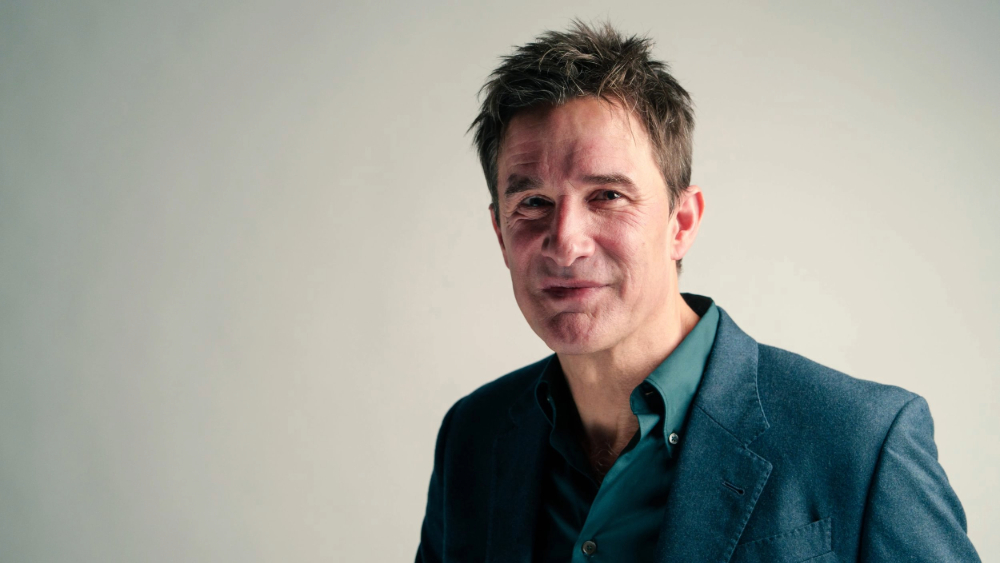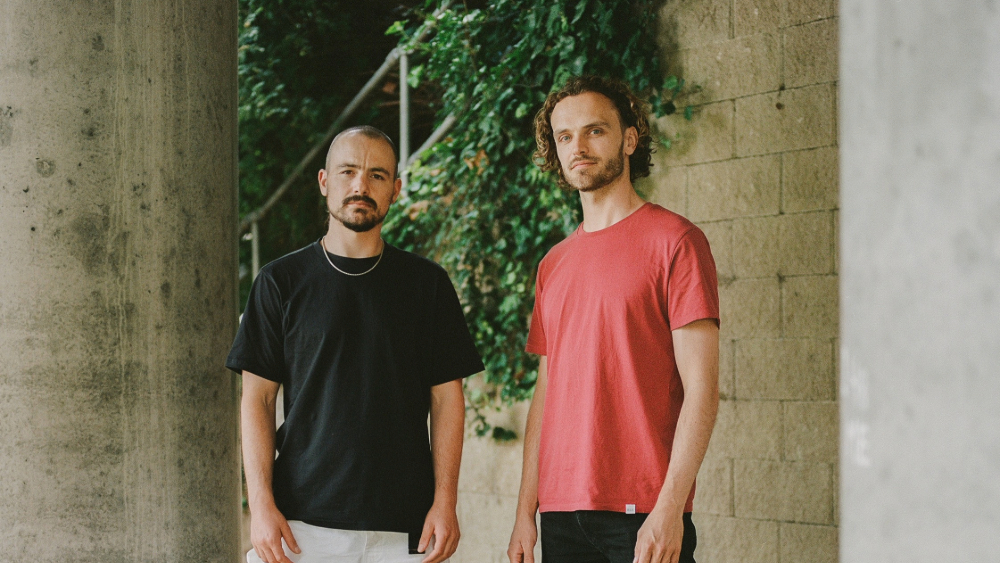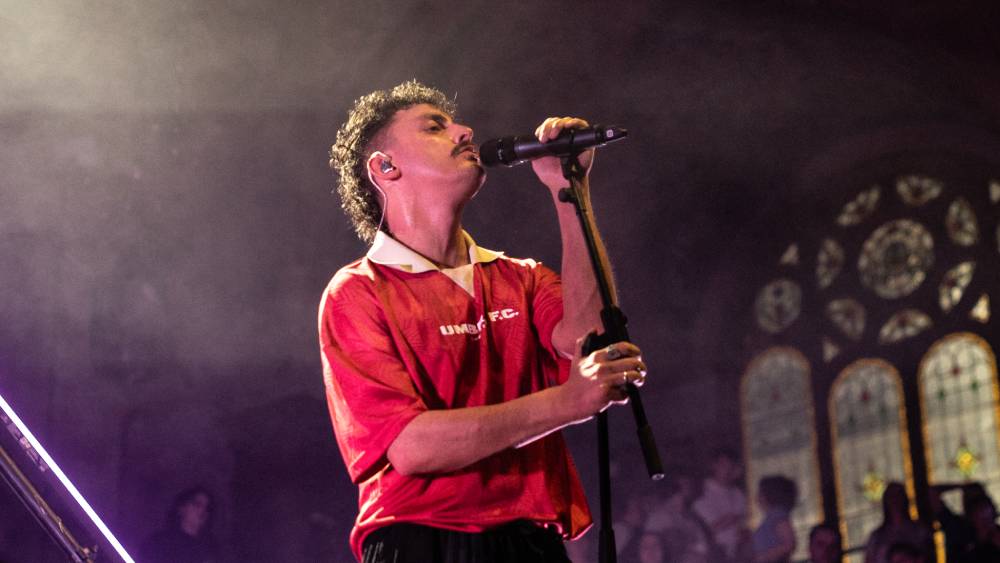What would a world without intellectual property look like? The chances are it would be a much less interesting, vibrant and above all creative place, as Sami Valkonen, PRS for Music’s Chief International Business Officer, neatly spells out.
‘If we go to the heart of it, IP is the engine to induce creativity,’ he says. ‘IP is the bedrock of making sure that we have not just music, but movies, TV, visual arts — all these wonderful things have their foundation on a bedrock of IP. Without it, there wouldn't be incentives for creativity.’
Speaking to M ahead of World Intellectual Property Day on Saturday (26 April), Sami adds that IP not only helps foster creativity, but it also protects people’s livelihoods: ‘Obviously, there are people who do creative things just for self-fulfilment. But that creative output would be significantly suppressed without IP, to the point where it would not be possible to make a career in the creative industries — and that would be a loss to society.’
A music industry veteran of over 30 years, Sami has had a foot in both camps. Starting out as a musician and songwriter in his native Finland, he immigrated to the US in 1990 and went on to join BMG before later becoming a copyright lawyer. Having joined PRS from Google seven years ago, he is now tasked with managing the society’s international licensing operations and relationships with fellow collective management organisations (CMOs) around the globe.
‘While American repertoire as a whole is the largest in the world, it is fragmented across multiple societies. Because of our strategic relationship with GMR [Global Music Rights], we actually have a meaningful share of US creators,’ Sami explains. ‘This allows me to make the bold statement that PRS has the largest and most valuable repertoire of any society in the world. With that, comes responsibility. We need to make sure that we use the leverage and power that our rich, expansive and highly popular intellectual property repertoire provides for good, and that's what we're committed to doing.’
'IP is the bedrock of making sure that we have not just music, but movies, TV, visual arts.'
PRS remains at the cutting-edge of maintaining, extending and introducing IP across the world, with Sami noting there are two main elements to the strategy.
‘One is to bring IP to places where it is not appropriately recognised,’ he says. ‘Those are generally developing countries, but not always. For example, the Gulf region is very developed and wealthy but, aside from the newly-formed Emirates Music Rights Association, there have been no collecting societies, and the region does not have a history of recognising copyright. Over the past five or six years, we've done a lot of work to get big companies in that region to respect copyright. We've licensed three of the biggest Gulf airlines and have also led a consortium of rightsholders to be able to license some of the digital audiovisual services operating there.’
Having got the ball well and truly rolling in that region, PRS is now shifting its focus to Africa which, according to Sami, has ‘a long history of neglecting IP’.
‘There's a lot more work that we believe can be done in some other developing countries, including India, and there are reforms that we believe are necessary in Latin America and some other key areas,’ he adds. ‘With the European and American societies, it's more about operation and working with them to increase efficiency. But in broad terms, we're on the same page with those societies.’
The second facet of the plan, continues Sami, involves the further improvement of data exchanges within the overall society network to enable royalties to flow faster through the system and with increased accuracy and transparency. ‘Working with the society system to improve its overall operational performance is actually a very important part of upholding IP and making sure it is properly respected,’ he adds.
This year’s World IP Day offers an opportune moment to not only celebrate the contribution of creators across the globe, but to take stock. In terms of PRS’s overall progress, the numbers speak volumes. A decade ago, its international operations paid out £195.6m, but by 2023 — the most recent set of results to be published — that figure had swelled to £339.3m. Sami doesn’t foresee this growth plateauing any time soon.
‘Obviously there is a ceiling somewhere, but I believe there is still room for growth,’ he says. ‘We still have plenty of opportunities to find new revenues and improve the way they are collected and paid through. But the utopia we are striving for is one where all of the music usage in the world is appropriately licensed and collected, and, importantly, that the money that is collected ends up in the right pockets — the creators who have made that music.’
'We still have plenty of opportunities to find new revenues and improve the way they are collected and paid through.'
As the battle to protect IP enters a critical phase with the looming threat of generative AI, it’s worth remembering what has gone before.
‘It is not the first pivotal moment,’ says Sami, who was at the forefront of reforming digital music licensing during a spell at Nokia in the late 2000s. ‘There was the moment when things went digital — that was a very pivotal moment that changed everything. When the CD came out, that changed a lot of things. There are always going to be things that create a shift.’
Sami is seeking to accentuate the positives of what AI technology can offer to both PRS and the wider music industry. He recalls a speech by ABBA’s Björn Ulvaeus, president of the International Confederation of Societies of Authors and Composers (CISAC), to back up his argument.
‘There’s a lot going into making our operations much more efficient in terms of royalty administration and rights management,’ he says. ‘On the creative side, I remember there were a lot of concerns raised at the CISAC General Assembly in Mexico City in 2023 — that was really the first time that the threat of AI was hot on the table. But Björn took to the stage and said that, “AI is like a friend that I can tap into for some inspiration”. So there are always two sides to a coin. Obviously, AI will have some negative impacts on the creative industries, but AI can also be used for the good — as an aide to creativity and to make royalties flow faster and more accurately.’
When setting out PRS’s wider mission, Sami is keen to address music creators directly — reinforcing that the organisation’s entire existence is geared around serving their interests.
‘Creators are the earth from which IP grows, so they have to be at the centre of everything,’ he explains. ‘Without them generating that creativity and that new material, our job would be meaningless. Our message to them is that we're here to help them sustain their trade and do right by their creations, and we look forward to that creativity continuing to blossom.’





